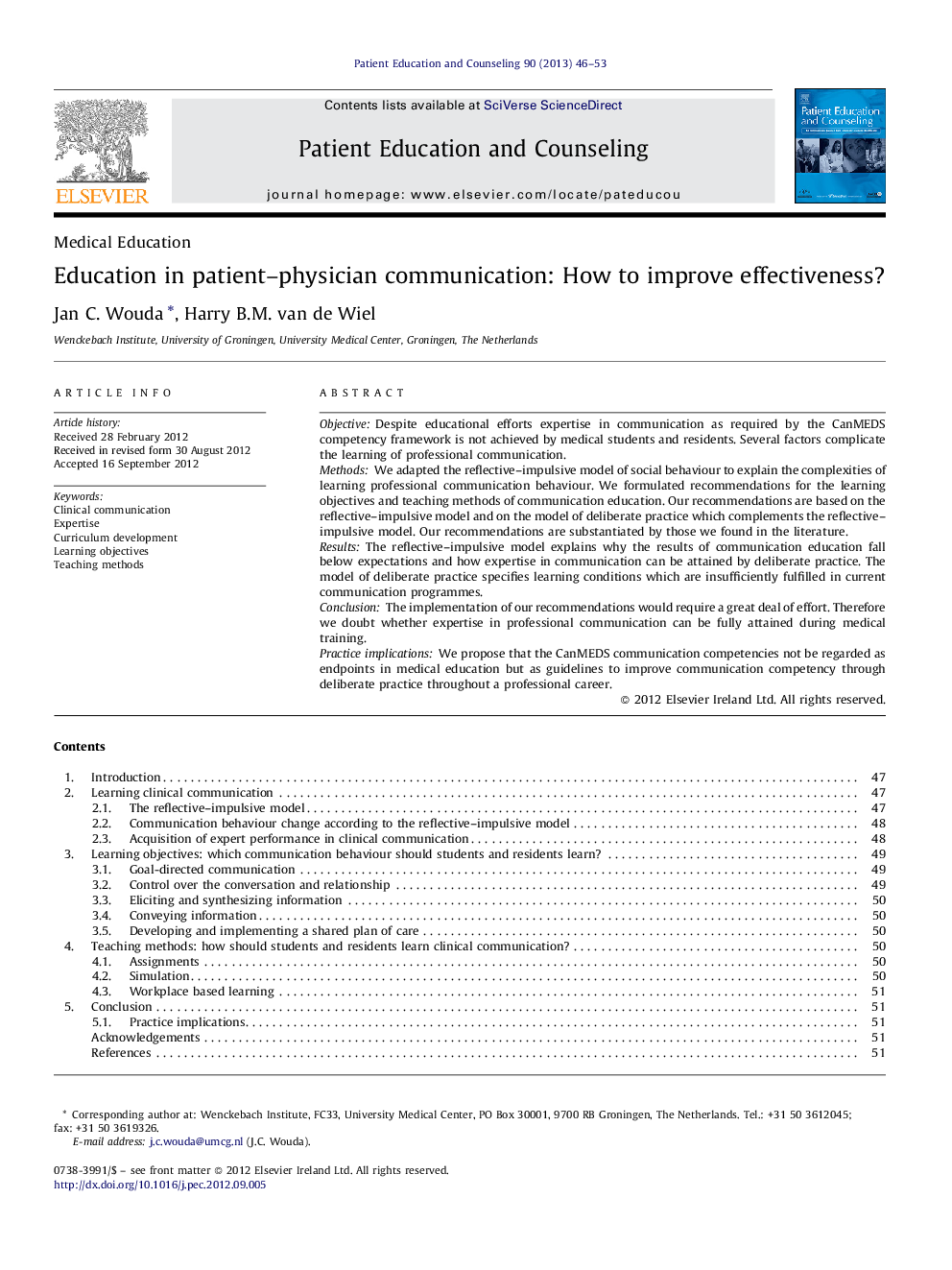| Article ID | Journal | Published Year | Pages | File Type |
|---|---|---|---|---|
| 3814177 | Patient Education and Counseling | 2013 | 8 Pages |
ObjectiveDespite educational efforts expertise in communication as required by the CanMEDS competency framework is not achieved by medical students and residents. Several factors complicate the learning of professional communication.MethodsWe adapted the reflective–impulsive model of social behaviour to explain the complexities of learning professional communication behaviour. We formulated recommendations for the learning objectives and teaching methods of communication education. Our recommendations are based on the reflective–impulsive model and on the model of deliberate practice which complements the reflective–impulsive model. Our recommendations are substantiated by those we found in the literature.ResultsThe reflective–impulsive model explains why the results of communication education fall below expectations and how expertise in communication can be attained by deliberate practice. The model of deliberate practice specifies learning conditions which are insufficiently fulfilled in current communication programmes.ConclusionThe implementation of our recommendations would require a great deal of effort. Therefore we doubt whether expertise in professional communication can be fully attained during medical training.Practice implicationsWe propose that the CanMEDS communication competencies not be regarded as endpoints in medical education but as guidelines to improve communication competency through deliberate practice throughout a professional career.
